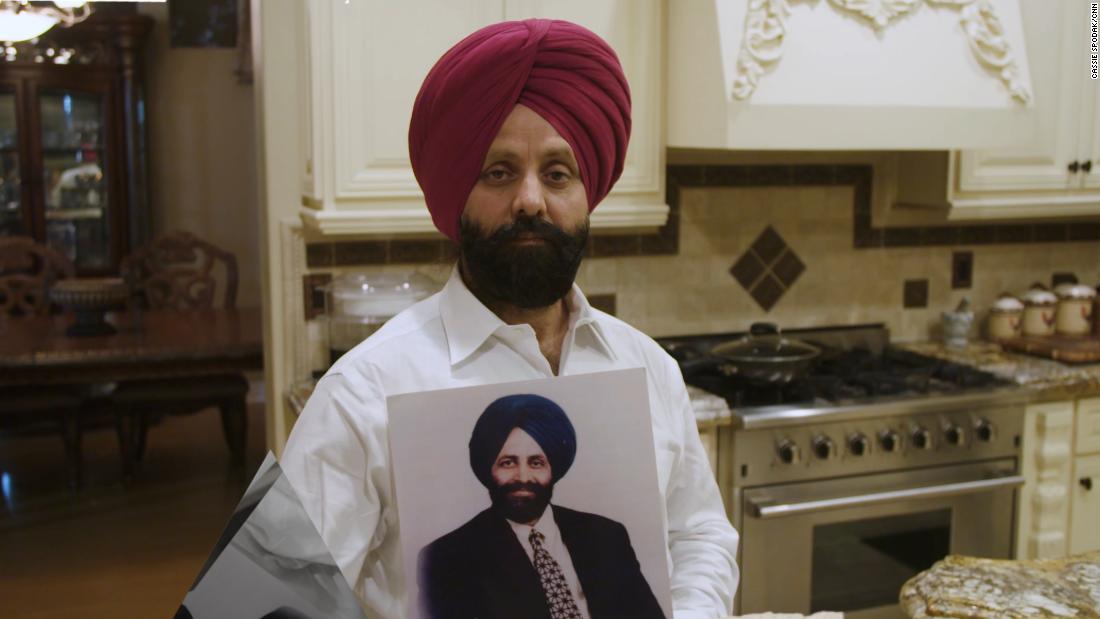
Phoenix (CNN)For Rana Singh Sodhi, not forgiving the man who murdered his brother wasn't an option.
"Before 9/11, I never believed, I never thought I should introduce myself to other people by telling who I am, why I'm wearing a turban," says Sodhi, who like his late brother wears a turban as a part of traditional Sikh culture. "I learned that after 9/11, there's so much ignorance in our own community."
That ignorance is what took his brother's life, says Sodhi.
He is now part of the National Sikh Campaign, an effort to educate Americans about one of the largest religious groups in the world.
The campaign emphasizes that the Sikh religion, which originated in Northern India, believes in equality and that "each of us can experience freedom through loving and serving others."
'Hate takes the people away from you'
It was four days after the attacks when Sodhi got a call telling him his brother had been killed.
Balbir Singh Sodhi was working on the landscaping outside his gas station in Mesa, Arizona, when Frank Roque drove by and shot him in the first recorded hate crime related to 9/11.
"I'm a patriot and American," Roque told police when they arrested him later that evening, after he continued a shooting spree against an Afghan couple and a man of Lebanese descent. "How can you arrest me and let the terrorists run wild?"
The other victims in the shooting spree were not injured in Roque's attacks.
On the 15th anniversary of his brother's death, Sodhi told Roque in prison over the phone that he forgave him, and said he also hoped that one day Roque would be released and help him educate more Americans.
For Sodhi, hating the man who killed his brother wasn't in line with his beliefs.
"If I hate him, right, it doesn't bring me closer. Hate take[s] the people away from you," Sodhi told CNN, as he reflected on the phone call he had with his brother's murderer. "If I hate him, I don't talk to him. I can't see him. He wants to apologize, but I don't want to see him. I don't want to give him a chance. This is wrong also."
Roque, in a phone interview, told CNN he regrets his actions every day and that they were the result of a mental breakdown.
He praised Sodhi's efforts.
"I would join up with him and stand arm-in-arm with him, and preaching to whoever will listen that even though we're different, we're all brothers," he told CNN from prison. "It takes a really good man to forgive for something terrible that has happened that has affected his life and his family's. So that told me what kind of man he is."
Living a life without fear
Sodhi immigrated to America in 1985, along with six of his brothers at different times, and he owns a restaurant and a gas station outside Phoenix.
He lost another brother who was shot while driving his taxicab in San Francisco, just months after Balbir's death.
Sodhi says the killer was never found but that police did not suspect it was a hate crime. He told CNN that people sometimes ask him why he wouldn't just take off his turban, to avoid the stares and animosity he says he sometimes receives.
"I don't want to live my life with fear, with coward[ness]. I want to enjoy. This is America. This is the land of freedom. I enjoy my freedom the way I want it," Sodhi told CNN. "We can change this thing. I'm not taking off my turban.
"After 9/11, if somebody keep(s) staring at me, I approach them and tell them, 'Hi. How are you?' "
As part of the National Sikh Campaign, Sodhi recently helped organize an event welcoming visitors to their place of worship, called a gurdwara, to share a vegetarian meal and conversation, and to experience Sikh prayer and music.
In one of the most popular activities, visitors could sit and have turbans tied around their heads.
Sodhi's family has also joined in his efforts, with his wife helping to cook and serve food, while his daughter taught visitors about Sikh practices.
Rise in hate crimes in the US
Sikh-American groups say members of their religion have faced discrimination and abuse because their long beards and turbans make them more visible than other minority groups.
According to the FBI, anti-Muslim hate crimes in the US surged 67% in 2016, to levels not seen since 2001.
Sikh men are often mistaken for Muslims due to their turbans and long beards. Sikhism is a monotheistic faith that emphasizes equality and service to others, says Sodhi.
Sodhi told CNN his aim is not to differentiate his religion from Islam, but to bring a message that is inclusive.
"Terrorist(s) don't belong to any faith and any religion," Sodhi told CNN. "Each community had a bad people, and you can't tag this thing to the whole community."
He sees his work as a way to give back to the country that is his new home.
"Who's American? We're all immigrant[s]. This is the land of immigrant[s]," Sodhi says. "The beauty of this country, we [are] all welcome with all different faiths, color, creed and gender. ... This is our responsibility to maintain, to make sure that this beauty, we keep it for all generation(s)."
Original Article : HERE ; This post was curated & posted using : RealSpecific
=>
***********************************************
Source Here: Hate took his brother’s life, but he says forgiveness was the only option
************************************
=>
Sponsored by AMA News
=>
This article was searched, compiled, delivered and presented using RSS Masher & TrendingTraffic
=>>
Hate took his brother’s life, but he says forgiveness was the only option was originally posted by Viral News 2
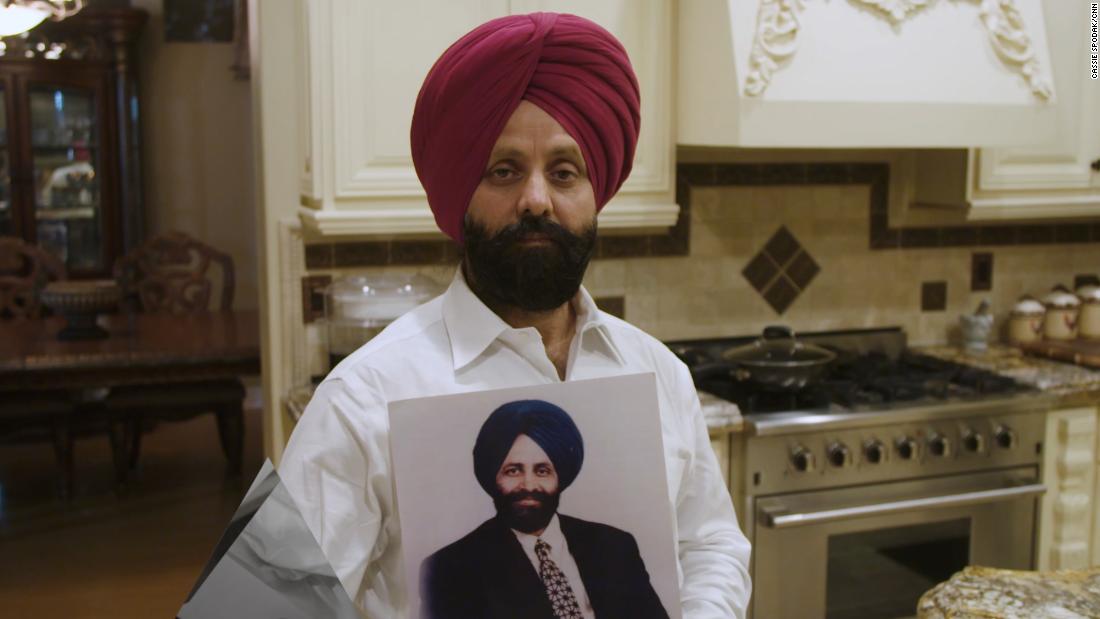
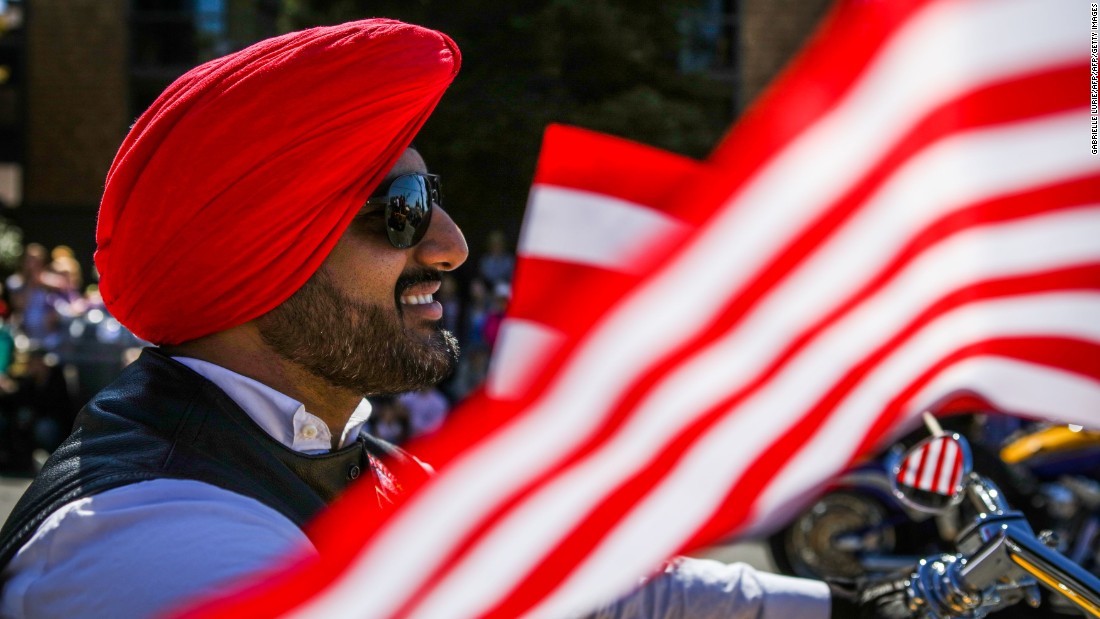
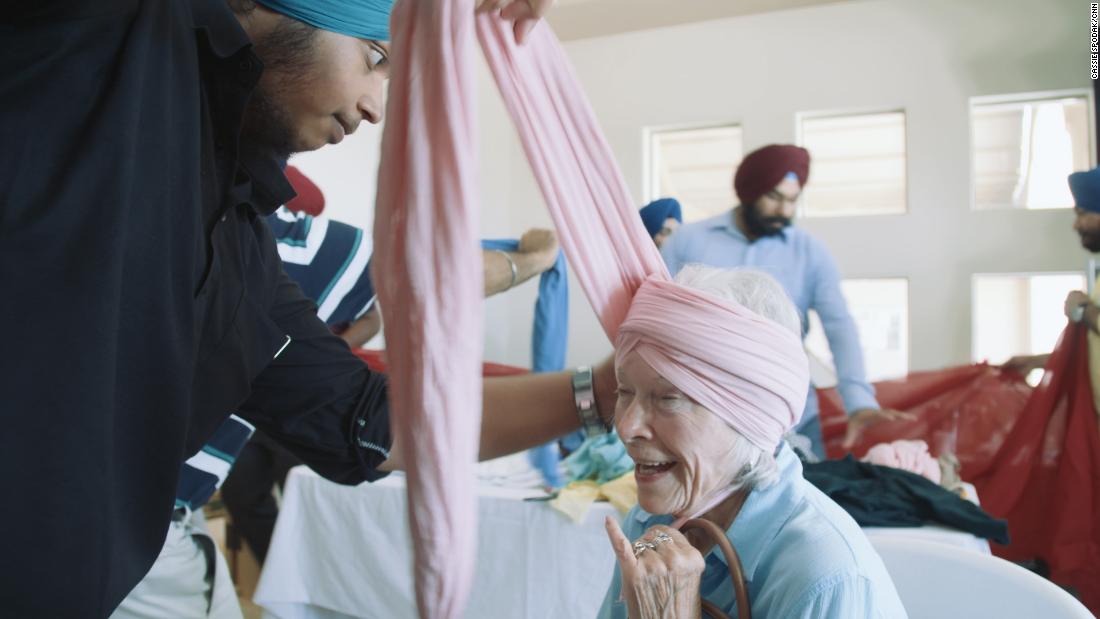
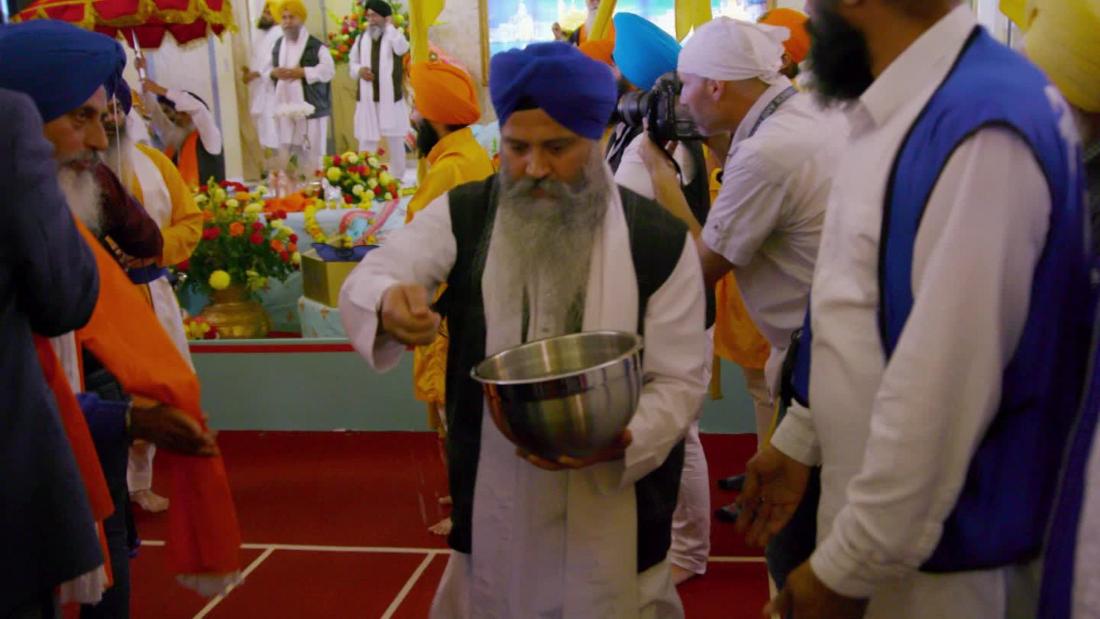
No comments:
Post a Comment